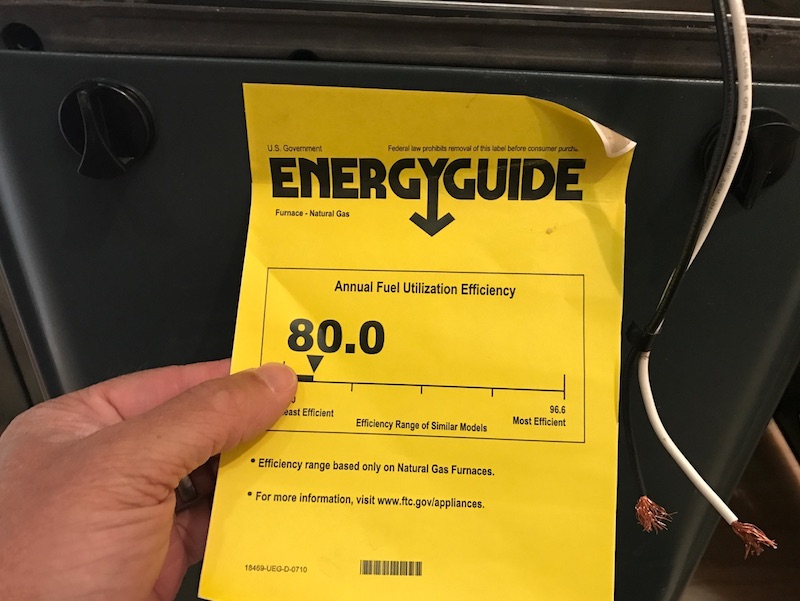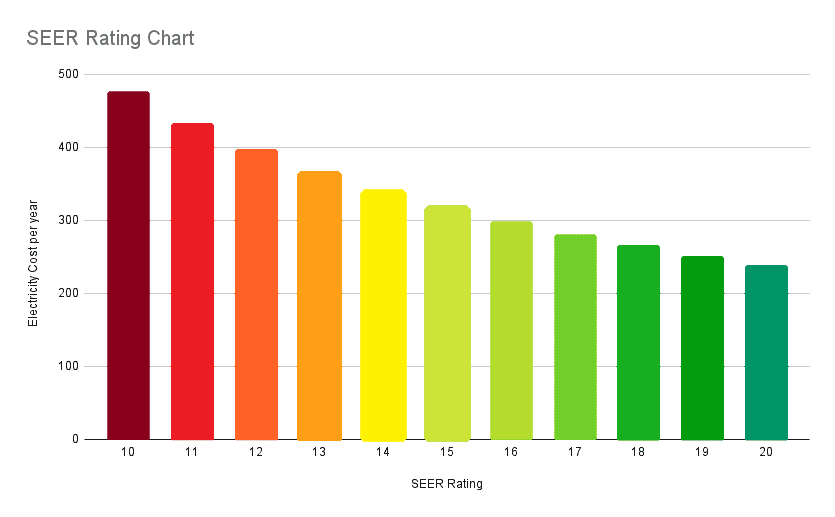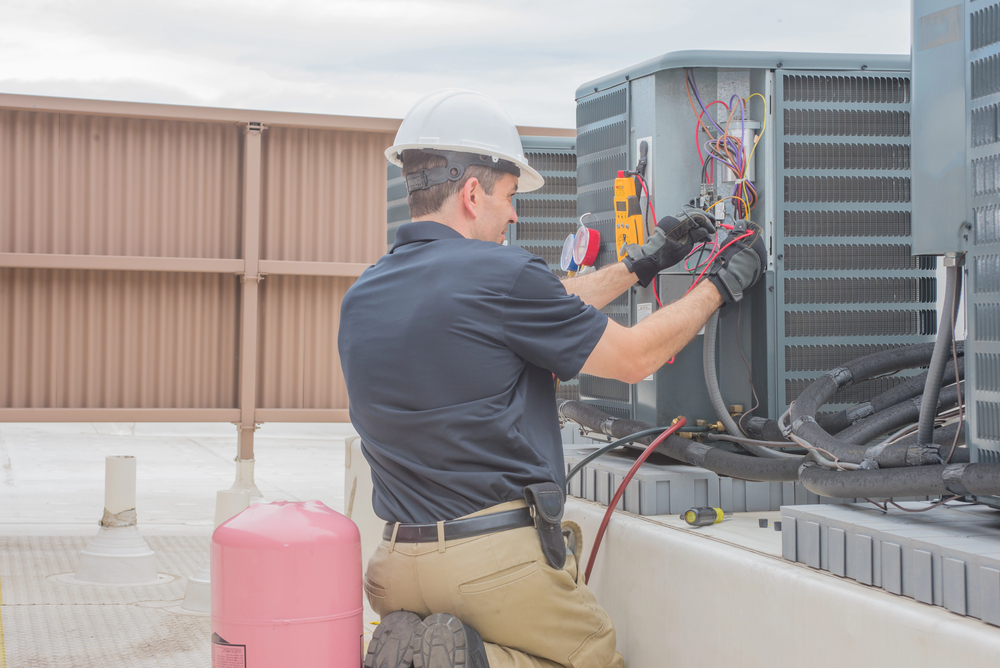Understanding HVAC Energy Ratings: SEER, HSPF, and More
Jul 24, 2024

When it comes to HVAC systems, energy efficiency is a key factor in both performance and cost savings. Understanding the various energy efficiency ratings can help you make informed decisions about your heating and cooling equipment. Here, we break down the most important ratings you should know: SEER, HSPF, EER, and AFUE.
Why These Ratings Matter
Understanding these energy efficiency ratings is essential for several reasons. Firstly, more efficient systems use less energy, which translates to lower utility bills. Secondly, efficient systems reduce greenhouse gas emissions and help protect the environment. Thirdly, systems with higher efficiency ratings tend to perform better, providing more consistent and reliable heating and cooling. Lastly, while high-efficiency units may have a higher upfront cost, the long-term savings on energy bills and potential rebates can make them a worthwhile investment. If you’re looking for the best options, consulting with a local HVAC company can provide tailored advice for your specific needs.
Overview of Energy Efficiency Ratings
- SEER (Seasonal Energy Efficiency Ratio): Measures the cooling efficiency of air conditioners and heat pumps over a typical cooling season.
- HSPF (Heating Seasonal Performance Factor): Measures the heating efficiency of heat pumps over a typical heating season.
- EER (Energy Efficiency Ratio): Measures the cooling efficiency of an HVAC system at a specific temperature, usually 95°F.
- AFUE (Annual Fuel Utilization Efficiency): Measures the efficiency of furnaces and boilers.
SEER (Seasonal Energy Efficiency Ratio)
SEER measures the cooling efficiency of air conditioners and heat pumps over a typical cooling season. It is the ratio of the cooling output, measured in BTUs, divided by the energy consumed, in watt-hours. Higher SEER ratings indicate more energy-efficient systems, which can lead to lower utility bills and a reduced environmental impact. The minimum SEER rating for new systems is usually around 14, but high-efficiency units can exceed 20.

SEER Frequently Asked Questions
1. What is considered a good SEER rating?
A good SEER rating typically starts at 14, which is the minimum efficiency standard for new air conditioning systems in many regions. Higher SEER ratings, such as 16, 18, or even over 20, indicate more energy-efficient systems. Choosing a unit with a higher SEER rating can result in significant energy savings over the lifespan of the system.
2. How does SEER affect my energy bills?
The SEER rating directly impacts the amount of energy an air conditioner or heat pump uses. Systems with higher SEER ratings are more efficient, meaning they use less electricity to provide the same amount of cooling as lower-rated systems. This efficiency translates to lower energy bills, especially during peak cooling seasons.
3. Are there any rebates or incentives for choosing a high SEER system?
Yes, many utility companies, local governments, and even federal programs offer rebates and incentives for installing high-efficiency HVAC systems. These incentives are designed to encourage consumers to purchase energy-efficient equipment, helping to reduce overall energy consumption and environmental impact. It’s advisable to check with your local utility provider or government websites for available programs.
4. How can I find the SEER rating of my current HVAC system?
The SEER rating of your HVAC system can typically be found on the energy guide label on the unit itself or in the product manual. If you cannot locate it, you can also look up the model number online or contact the manufacturer or a professional HVAC technician for assistance.
5. Is a higher SEER rating always better?
While a higher SEER rating indicates greater energy efficiency, it is not always the best choice for every situation. Higher SEER systems often come with higher upfront costs. It’s essential to balance the initial investment with potential energy savings over time. Consulting with a professional HVAC repair contractor can help you determine the most cost-effective and efficient option for your specific needs and climate.

HSPF (Heating Seasonal Performance Factor)
HSPF measures the heating efficiency of heat pumps over a typical heating season. It is the ratio of the heat output, measured in BTUs, to the electricity consumed, in watt-hours. A higher HSPF rating means more efficient heating performance, which is particularly important for those in colder climates. Modern heat pumps generally have HSPF ratings between 8 and 10, with higher numbers indicating better efficiency.
EER (Energy Efficiency Ratio)
EER measures the cooling efficiency of an HVAC system at a specific temperature, usually 95°F. It is the ratio of the cooling output, in BTUs, to the energy input, in watt-hours. Unlike SEER, which averages efficiency over a season, EER provides a snapshot of efficiency under peak load conditions. It’s particularly useful in areas with consistently high temperatures. Higher EER ratings indicate better performance under extreme conditions, often making it a critical consideration for hot climates.
AFUE (Annual Fuel Utilization Efficiency)
AFUE measures the efficiency of furnaces and boilers. It is the ratio of the annual heat output, in BTUs, to the total fossil fuel energy consumed, in BTUs. A higher AFUE rating means more efficient fuel use, leading to lower heating costs and reduced emissions. AFUE ratings typically range from 80% to 98%, with higher percentages indicating greater efficiency. Regular AC maintenance can help ensure your system operates at peak efficiency.

Choosing the Right SEER Rating for Your HVAC System
When shopping for a new HVAC system, considering the SEER, HSPF, EER, and AFUE ratings can help you choose the most efficient and cost-effective option for your home. Always consult with a professional HVAC contractor to ensure you select the right system that meets your needs and complies with local regulations. By understanding these ratings, you can make informed decisions that enhance your home comfort, save money, and contribute to a healthier environment.
